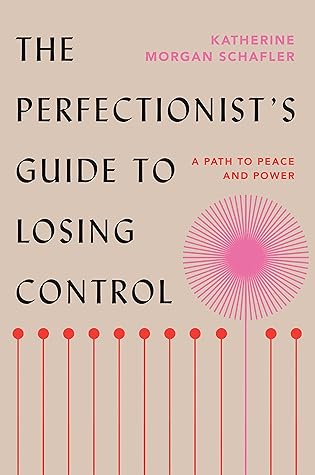More on this book
Community
Kindle Notes & Highlights
Read between
August 8, 2023 - March 17, 2024
Self-imposed upper limits on what you can and cannot do and who you can and cannot be are control tactics. You’re trying to control your vulnerability to getting hurt.
Anticipation is a critical consideration for well-being because we spend a lot more time anticipating the events of our lives than engaging in them.
“Often the threat of being hurt and actually being hurt are experienced in the same way.”[25]
Healing is boring sometimes; no one tells you that.
Everyone has a stack of simple things that are hard for them. Simple isn’t easy.
What you’re desperate for is not the time to do it; it’s the energy to do it.
Psychologists have long known that procrastination is not a time-management issue; it’s an emotional-regulation issue.
Anything you do to protect, save, restore, and build your energy is productive.
You are not on the earth to complete tasks and then die. You are not a bar graph of output. You are a human being.
What energizes you without hurting you?
The point of art is to move you. Being moved by art looks like standing still and realizing that your internal world is so much more alive than you remember it being before you encountered the artwork.
Restoration presents a unique set of challenges for perfectionists.
Perfectionists interpret the experience of being tired as if they did something wrong and need to correct for their error.
Applying pressure to alleged leisure activities does not a leisure activity make.
The sustained energy required to attend to your life in a consistently conscious manner (which is the way adaptive perfectionists operate) is a type of athleticism.
Calling that a red flag is like saying the core of the earth gets kinda hot sometimes.
It’s easy to mistake isolation for independence and being stubborn for being strong.
Somewhere along the line, we got it in our heads that being healthy and strong means that we’ve finally figured out how to not need anything from anyone.
Sleep does for your brain what hydrating does for your skin—sleep makes your brain glow.
Breathing deeply, walking, sleeping—these are highly efficacious mental health interventions.
Not giving energy or time to that which you don’t care about is as brilliant as restoration strategies get.
Maladaptive perfectionists are perpetually on some version of a joy diet.
Pleasure is so intrinsically linked to clinical depression that the DSM identifies a loss of pleasure as one of the two core diagnostic criteria for a major depressive episode.
If pleasure is an afterthought for you, you are in danger.
Without pleasure, our lives become performative.
When you put your desire on mute, you also mute your intuition.
When you make your access to pleasure conditional (a “treat” for being good), you’re communicating to yourself that whether you deserve to feel good lies in direct proportion to your performance, not your existence.
The people who trust themselves the most are the ones who honor their boundaries the most.
Your self-destructive patterns are the least interesting thing about you; why are you allowing them to lead your identity?
Sustainable change unfolds on such a granular level, so microscopically, for so long.
A person who understands that they can use their everyday life to animate what’s meaningful to them is a person who is in touch with their power.
In a control mindset, pleasure is a distraction. You don’t have time to feel good when you’re operating within a scarcity model that demands a continual supply of externally validated worth.
You can also love your body and hate yourself.
It’s connection that brings joy and meaning to our lives—that has always been the case and will always be the case.
The energy you bring into the room with you is more valuable than anything you could ever do.
None of these categorizations mean anything unless they mean something to you.


